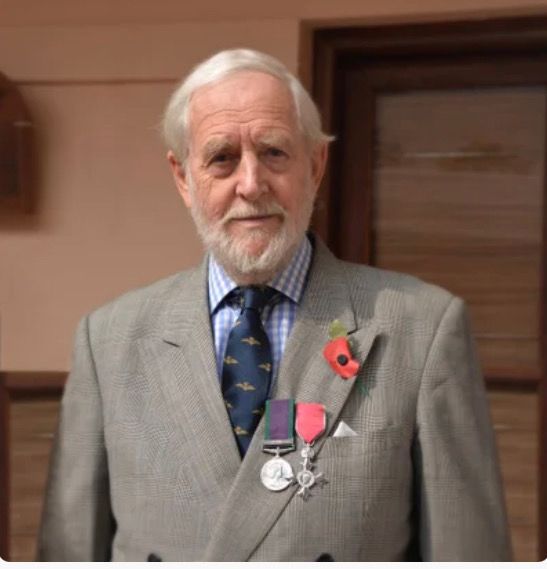The school that Capt Howard built
On the edge of the concrete jungles of Gurugram, as the hill line of the low Aravalli ridges comes into view, I steer my motorcycle on to a village road. Every now and then, heavy dumper trucks rumble past, desecrating the peaceful repose of the region. A boy waves at me for a lift and, as it turns out, he is from the same village where I am headed. He shows me the way to the Gairatpur Bas Panchayat School — a labour of love of a Britisher.
A naval officer, Captain Martin Howard first came to India in 1984 as a naval attache in the British High Commission. He became an Indophile. He and his wife Anne bought land at the outer edge of Tikli village, in the shadow of an Aravalli ridge, and built a house, naming it ‘Tikli Bottom’. He then transformed it into a successful guest house.
On his walks, he found that the children were not going to school, especially girls. He approached the village council with a proposal to start a school, which was gladly accepted.
In 2000, he started by teaching two children English under a kikar tree. In 2001, he had 11 students. Today, the school has 560 students and 27 teachers. It is now run by Capt Howard’s daughter, Joanna Powell, better known as Jojo Ma’am. She was in the UK when her father passed away after a brief illness on March 14, 2021. She flew in for his cremation, as per Hindu rites, and stayed on — fulfilling her promise to him that she would look after the school after he had gone.
 Captain Martin Howard.
Captain Martin Howard.
As I enter the school, students dot the lush green playfield, engaged in activities or studying under neem and mulberry trees. The buildings have arched verandahs, painted in blue, green, terracotta and various bright colours. The architecture of the classroom blocks is distinctive; none of the square box designs.
I am welcomed by school coordinator Anuradha, a staff member since the very beginning. The school is situated on 3 acres of panchayat land and one of the academic blocks overlooks the village pond. The principal, Nisha Ma’am, is away that day for official work.
We run into Jojo Ma’am, and her pleasant demeanour is a reflection perhaps of the values her father so deeply believed in. She too swears by the school’s basic principles — particular emphasis on education of the girl child, good moral values and virtues of kindness, self-discipline, initiative and honesty.
The school for the underprivileged children of the surrounding three villages is run on Montessori lines, and girls outnumber boys. The school is run by the Gairatpur Bas Educational Trust and it invites funding through corporate social responsibility of business houses and other philanthropists. Capt Howard was awarded MBE in the Queen’s Honours list in 2017 for promoting education in rural India.
A cheerful young man, the games teacher, best exemplifies what the school has managed to achieve. “I was in search of a good games teacher and the candidates did not quite fulfil the requirements until this young aspirant came along,” says Jojo. “Once selected, he wouldn’t stop smiling. I asked why, and he replied: ‘I am a student of this very school, Ma’am.’ It was just a joyous feeling.”
As I meet the young man, he can’t stop talking about what Capt Howard meant to him and the villagers. “Once, he was coming to the school and saw a couple of potholes. By evening, he was himself carrying material to fill the potholes.” That explains the quote I read on the school walls, that is attributed to the founder: ‘Never ask someone to do a thing until or unless you are yourself not capable of doing it.’ In a remote, neglected region, inculcating a resolve to take control of your own life and destiny is unique and refreshing.
The last I heard, a girl student has qualified for a medical scholarship in Canada. Just what the good Capt Martin Howard believed in — “think global, act local”.
— The writer’s fourth book, ‘Call of the Stars’, has been published by Sabre and Quill
Features